Search
Remove Ads
Advertisement
Summary 
Loading AI-generated summary based on World History Encyclopedia articles ...
Search Results
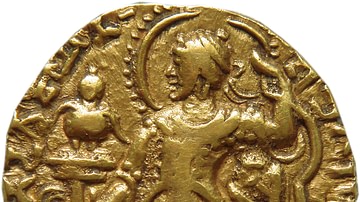
Definition
Samudragupta
Samudragupta (r. 335/350 - 370/380 CE) was the first significant ruler of the Gupta Dynasty. Having come to the throne, he decided to extend the boundaries of his empire to cover the multiple kingdoms and republics that existed outside its...
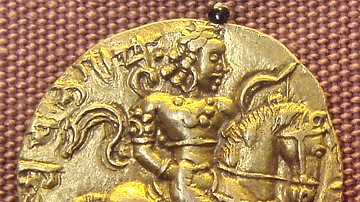
Definition
Chandragupta II
Chandragupta II (c. 375 CE - 413/14 CE) was the next great Gupta emperor after his father Samudragupta (335/350 - 370/380 CE). He proved to be an able ruler and conqueror with many achievements to his credit. He came to be known by his title...
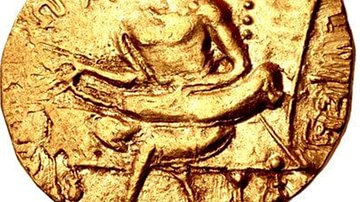
Image
Samudragupta Coin: Lyrist Type
This gold coin issued by Emperor Samudragupta (335/350 – 370/380 CE) of the Gupta dynasty shows him playing the vina, an Indian stringed instrument resembling the lyre or lute. The legend on the coin says "Maharajadhiraja-Shri-Samudraguptah”...

Image
Samudragupta Coin: Standard Type
This coin issued by Emperor Samudragupta (335/350 – 370/380 CE) of the Gupta dynasty shows him wearing a Scythian-style coat, trousers and cap and Indian-style necklace and earrings. He has a halo around his head. The standard shown in the...

Definition
Gupta Empire
The Gupta Empire stretched across northern, central and parts of southern India between c. 320 and 550 CE. The period is noted for its achievements in the arts, architecture, sciences, religion, and philosophy. Chandragupta I (320 – 335 CE...

Image
Gold Coin of Samudragupta
Gold coin issued by Samudragupta (circa 335 – 375 CE).
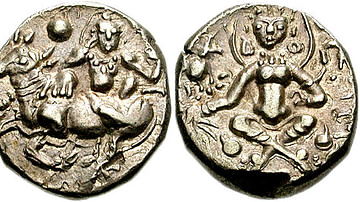
Definition
Gauda Kingdom
The Gauda Kingdom came into being in the late 6th century CE in eastern India, as a result of the political disintegration of the Gupta Empire (3rd-6th century CE). Its core areas were situated in what is now the state of Bengal in India...
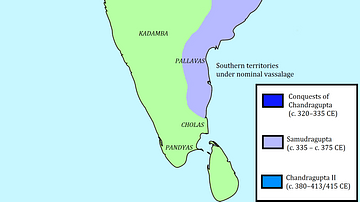
Image
Gupta Empire and Conquests
This map shows the conquests made by Gupta rulers in the 4th century CE and early 5th century CE. Of these three rulers—Chandragupta I, Samudragupta and Chandragupta II—Samudragupta’s conquests are the most important and the most extensive...
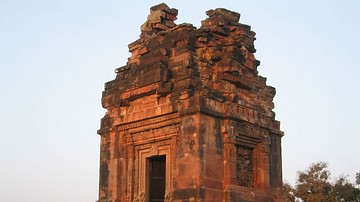
Definition
Gupta Architecture
The Gupta Dynasty (4th-6th century) in North Central India saw the first purpose-built Hindu (and also Buddhist) temples which evolved from the earlier tradition of rock-cut shrines. Adorned with towers and elaborate carvings, these temples...
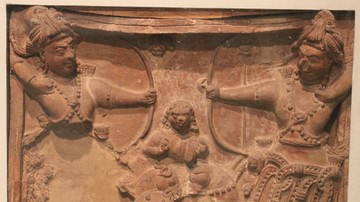
Definition
Ancient Indian Warfare
War was the chief means by which territory was annexed or rulers defeated in ancient India, which was divided into multiple kingdoms, republics and empires. Often one empire predominated or different empires co-existed. The Vedic literature...